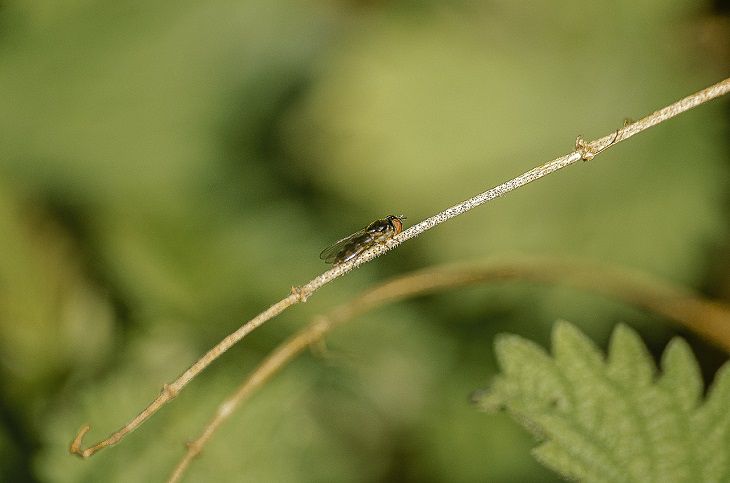Houseplants add coziness and freshness to any interior, but, unfortunately, along with them, unpleasant "neighbors" - small midges - can also enter the house.
These tiny insects not only spoil the appearance of plants, but can also negatively affect their health.
To effectively combat this problem, it is important to understand the causes of midges and how to get rid of them.

Reasons for the appearance of midges
Small midges, also known as sciarids, usually appear in indoor plants due to overwatering and stagnant water in pots.
Moist soil becomes an ideal breeding ground for the larvae of these insects.
Often the source of infection is organic fertilizers or fresh soil, which may already contain midge eggs.
Another reason is the lack of proper drainage in the pots, which leads to soil acidification and the creation of favorable conditions for insects.
Methods
There are several effective methods for controlling midges in indoor plants. First of all, you need to reduce watering of plants.
Allowing the top layer of soil to dry out helps disrupt the midge breeding cycle, as the larvae cannot survive in a dry environment.
Additionally, it is worth checking the drainage holes and, if necessary, improving drainage to prevent stagnant water.
The use of biological control methods also gives good results. For example, special bacteria are available for sale that are safe for plants but destructive to midge larvae.
They penetrate the soil and kill insects at the larval stage. Such products are sold in garden centers and can be used according to the instructions on the package.
Chemical control methods
When biological methods do not produce the desired effect, you can resort to the use of chemical preparations.
It is important to choose products that are safe for use in residential areas.
There are special insecticides for indoor plants that effectively combat midges.
However, before using chemicals, you should carefully read the instructions and follow all safety precautions.
________________________________________
"Some plants, such as lavender and basil, have properties that repel gnats. Try planting them near other houseplants."
________________________________________
Prevention of midges
To prevent the reappearance of midges, it is necessary to follow a few simple rules. Regular monitoring of the soil moisture level and proper watering will help to avoid stagnant water.
When replanting plants, you should use only sterilized soil and disinfect the pots.
It is also useful to periodically ventilate the room and prevent stagnant air, which creates unfavorable conditions for midges.
Previously, we talked about how to find out if you can drink water from a well .
